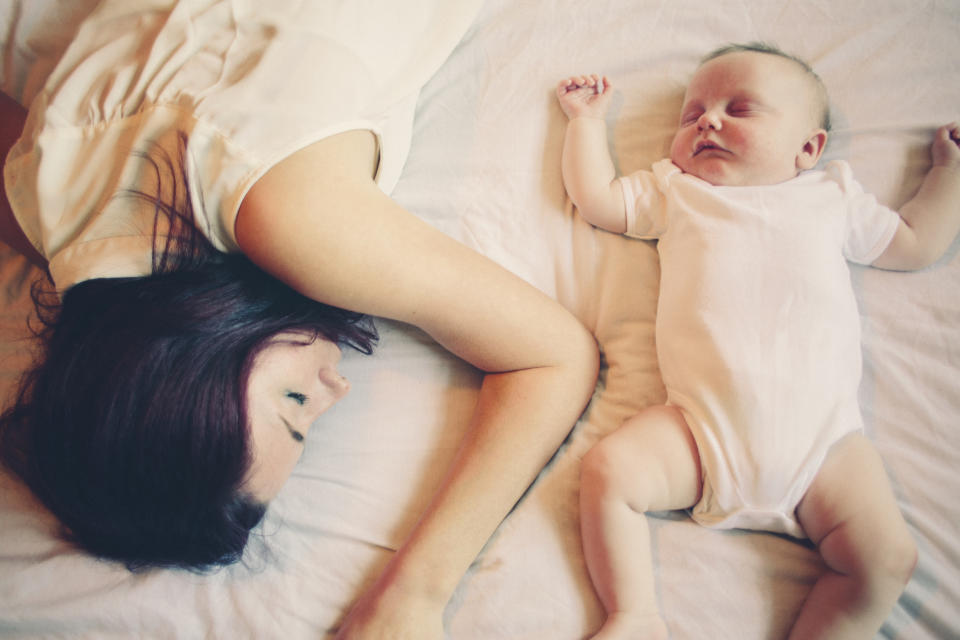Postpartum depression may be influenced by when you give birth
Postpartum depression affects an estimated one in nine women. And while there are some known risk factors for developing the mental health condition, such as a previous history of depression and high levels of stress, researchers are still learning about why some women develop postpartum depression while others don’t. Now, scientists have found a few more surprising factors that may increase a woman’s risk of developing postpartum depression.

In a study of more than 20,000 women presented at the American Society of Anesthesiologists annual meeting, researchers found that a total of 817 women, or just over 4 percent, experienced postpartum depression. The researchers discovered that women who suffered from postpartum depression were more likely to have given birth in the fall or summer, had babies earlier in their pregnancy, and did not have anesthesia (for instance, an epidural) during their delivery.
Postpartum depression, which is defined by the Centers for Disease Control and Prevention as depression that occurs after giving birth, has many symptoms. They include crying more often than usual, feeling angry, withdrawing from loved ones, feeling guilty about not being a good mother or doubting their ability to care for their baby, feeling numb or disconnected from the baby, and worrying about hurting the baby. As with any other illness, there is a range in how severely each woman experiences these feelings. Some women may feel better after taking good care of themselves, while others may need talk therapy or antidepressants.
Seasonality hadn’t previously been studied in depth as a factor in postpartum depression, but Tamar Gur, MD, PhD, a women’s health expert and reproductive psychiatrist at the Ohio State University Wexner Medical Center, tells Yahoo Lifestyle that the findings make sense on some level. Women are often cooped up inside right after they have a baby, which can be a struggle when the weather is gorgeous. “It’s fun to cozy in and snuggle with a new baby in the winter, since you’ll be hibernating anyway,” she says. “But in the summer and fall, you really want to get out.” It’s possible that if a woman is already predisposed to postpartum depression, being stuck inside when it’s nice out “can be an extra hit,” Gur points out.
If a woman has a baby before it has reached full term, the baby is at increased risk of ending up in the neonatal intensive care unit (NICU). “Having a child in the NICU gives women a 40 percent increased risk of developing postpartum depression,” Gur says. There are several reasons for this, she explains: Part of postpartum depression is feeling that you can’t take care of your child, which is exacerbated when your baby is in intensive care. Stress is also a known risk factor for postpartum depression, and having a baby in the NICU is anxiety-inducing for any parent.
As for the anesthesia findings, there is a small but significant risk of developing postpartum depression if you have experienced obstetrical complications, Gur notes. So it’s possible that women who have epidurals experienced fewer complications or felt less pain during delivery, which lowers their risk of experiencing depression.
That said, you shouldn’t freak out if your baby is due in July or you know you want to have a birth without medical intervention. These are just risk factors that researchers in a new study discovered, but meeting the criteria for one or all of them doesn’t mean that you are at risk. “Not everybody is going to get postpartum depression,” Catherine Birndorf, MD, founder of the Motherhood Center in New York City and co-author of the upcoming book Mother Mind, tells Yahoo Lifestyle. “A lot has to do with predisposition and the severity of postpartum depression.”
If you’re concerned about your risk, Gur recommends lining up help before you give birth to make sure that friends, your partner, and family members are willing and able to pitch in when you need them. “Have all hands on deck, and have a plan,” Gur says. It’s also a good idea to educate your loved ones on the major symptoms of postpartum depression, just in case, she says.
Read more from Yahoo Lifestyle:
Follow us on Instagram, Facebook, and Twitter for nonstop inspiration delivered fresh to your feed, every day.

